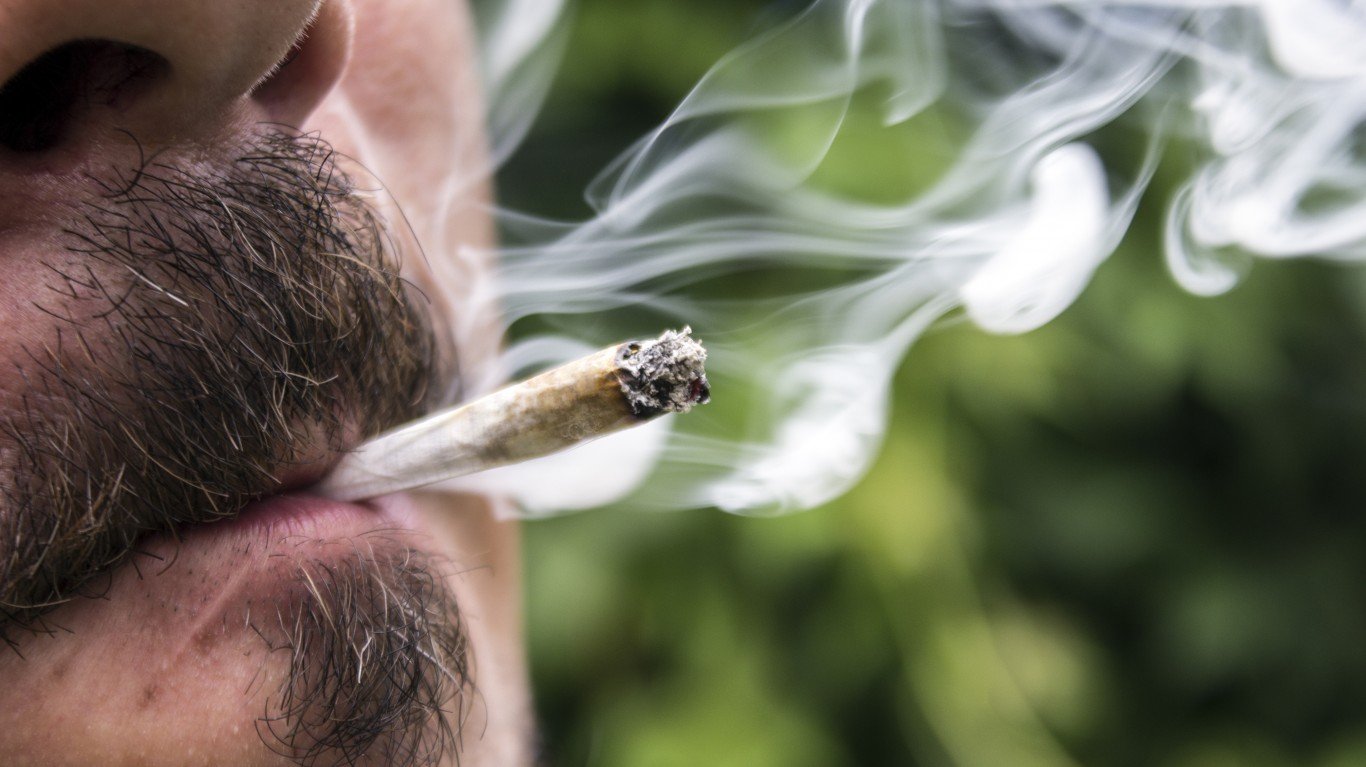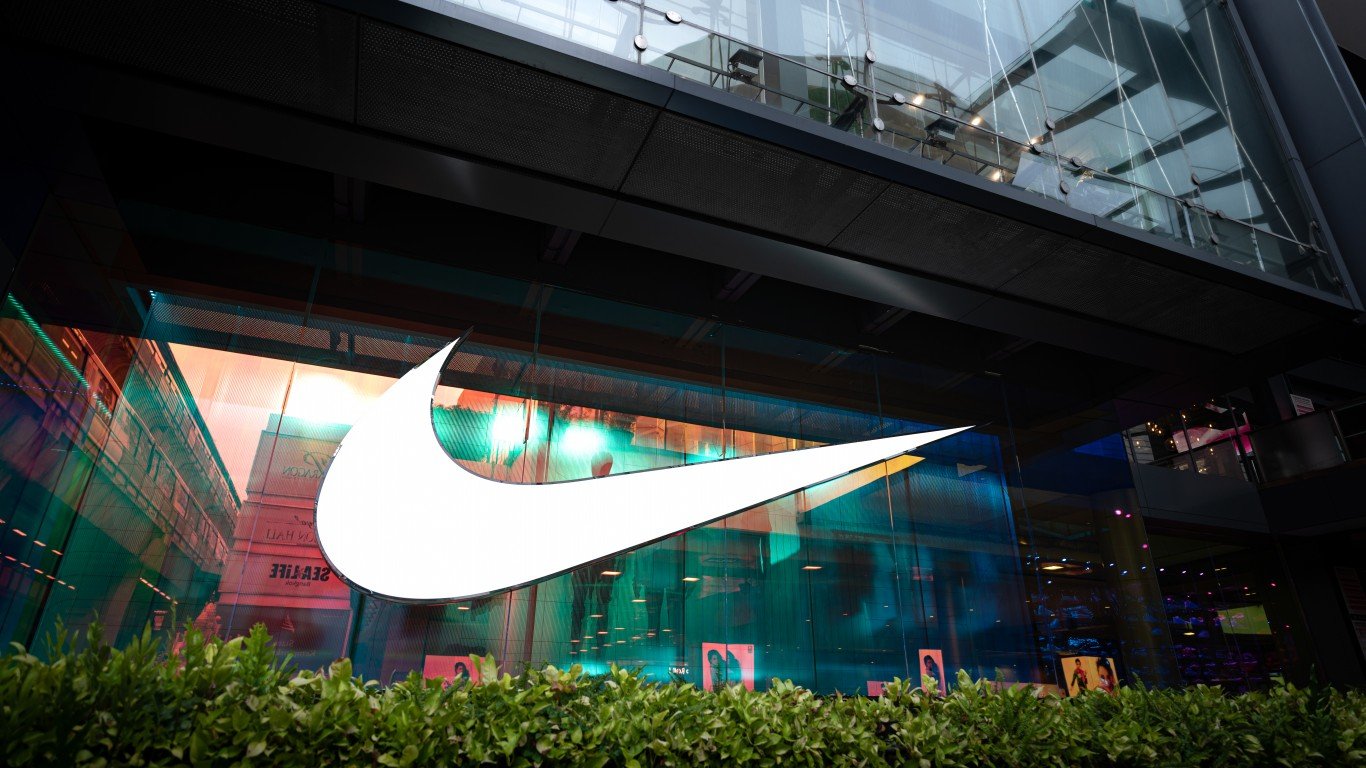

The legal sale of recreational marijuana is a grand experiment, with many unknowns. But a new report on Ontario’s first full year of cannabis retailing provides some clues as to how the infant industry is faring.
The report includes some promising news for Aurora Cannabis (NYSE: ACB), the licensed marijuana producer based in Edmonton, Alberta. Aurora was founded in 2006. It produces and sells medical and recreational cannabis products in more than 20 countries.
Long-term Aurora investors have been on a wild ride. The stock’s 52-week high is $96.84, but the company was forced to do a reverse split in order to remain listed. Aurora stock was trading around $15.00 Tuesday afternoon, down more than 4% from Monday.
Year to date, the share price is down about 40%, but it’s rebounded in recent weeks. In the last month, the stock jumped 135%.
Among marijuana stocks, Wall Street analysts have been viewing Aurora more favorably. Zacks Equity Research finds that current quarter estimates have narrowed from a loss of 36 cents per share to 27 cents. The average 12-month price target sits at $27.93. Three analysts rate Aurora a Buy, nine say Hold and five say Sell.
The Ontario Experience
The Ontario Cannabis Store is the only authorized recreational retailer in the province, Canada’s largest. Ontario is home to Toronto and Ottawa, the nation’s capital. The store also acts as a wholesaler for private-sector pot stores.
For its first full year of business, which ended March 31, the store reported sales of C$400 million. That’s 35 million grams of marijuana.
Illegal pot sales still dominate the market in Ontario, according to the report. In the most recent quarter, legal sales accounted for only 19% of the total. To compete with the black market, the Ontario Cannabis Store said it cut the median dried flower price by 25%.
Sales should be a lot higher in the coming year since retail store openings got off to a slow start in Ontario. The Ontario Cannabis Store only had nine locations in the beginning. But a year later, there were 53.
Ontario Cannabis consumers mostly bought dried flower products, which represented 79% of sales by volume. But cannabis 2.0 products, including vapes and edibles, were only made available late in the year. Vapes accounted for less than 4% of sales, and edibles only 1%.
Many experts expect these products to pick up a bigger share of the market. And these products aren’t generally available on the black market, which should help legal retailers.
Aurora on Top
Aurora was the top brand in the dried flower, pre-roll and edible categories. “For dried flower, Aurora Cannabis’ San Rafael ’71 and Aurora brands led sales both at OCS.ca and in retail stores, with each brand comprising 8% of sales through each channel,” said Marijuana Business Daily.
The company has a head start in the fairly new edibles category too. Aurora’s Drift brand topped the edibles category with 27% of sales online and 25% in retail stores.
In its last earnings report, the company reported that its goal is “to gain market share where it can and remain well positioned to capture more share of the revenue growth of the various cannabis markets over time.”
Not surprisingly, online sales through OCS.ca increased after March, when Canada began a stay-at-home shutdown to fight the coronavirus. The store ramped up its home delivery service to meet demand. Prior to COVID-19, monthly e-commerce transactions typically totalled between 50,000 and 75,000 per month. They soared to 115,000 in March.
Pulling Out of a Bad Investment
Last week, Aurora unloaded its 23% stake in Alcanna, a large liquor store chain in Alberta. As Alcanna expanded into marijuana dispensaries, Aurora saw distribution opportunities and made an investment.
But it didn’t pan out. Aurora is getting C$27.6 million in the deal, far less than the C$138 million it invested two years ago, according to Marijuana Business Daily.
Throughout its history, Aurora has aggressively sought new opportunities. It recently closed a deal to purchase Reliva LLC, which sells hemp-derived CBD products in the United States.
“We firmly believe that the combination with Reliva will create significant long-term value as Reliva provides us options to grow in hemp-derived CBD internationally,” said Aurora CEO Michael Singer. Reliva is reportedly a profitable business, selling creams, tinctures and beverages with CBD, the non-intoxicating form of cannabis.
CIBC Capital Markets said Reliva’s CBD brand gives Aurora access to a large base of customers but noted that the CBD market in the United States is highly competitive. On the plus side, CIBC said that Reliva is profitable and carries no debt.
Earlier this year, Aurora cut 500 jobs and unveiled a sweeping financial revitalization plan. It included $750 million in write-downs and asset impairment charges.
Aurora’s competitors include Aphria (NASDAQ: APHA), Canopy Growth (NYSE: CGC) and Cronos Group (NASDAQ: CRON).
Sponsored: Want to Retire Early? Here’s a Great First Step
Want retirement to come a few years earlier than you’d planned? Or are you ready to retire now, but want an extra set of eyes on your finances?
Now you can speak with up to 3 financial experts in your area for FREE. By simply clicking here you can begin to match with financial professionals who can help you build your plan to retire early. And the best part? The first conversation with them is free.
Click here to match with up to 3 financial pros who would be excited to help you make financial decisions.
Thank you for reading! Have some feedback for us?
Contact the 24/7 Wall St. editorial team.



